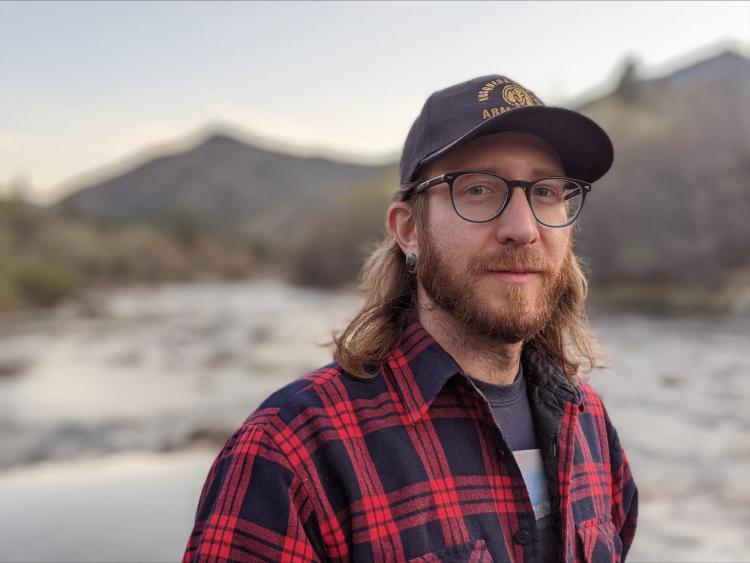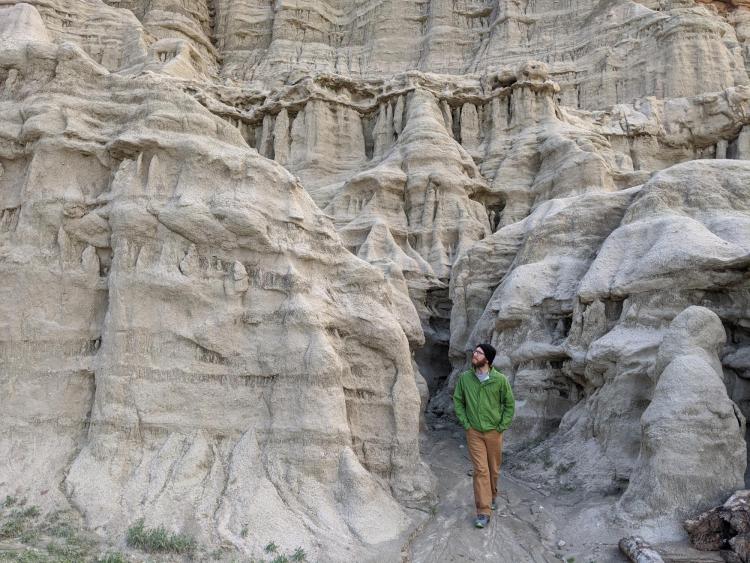Five Questions for the Fellows: Andrew Cullen
The Ted Scripps Fellowships have been bringing award-winning environmental journalists to CU Boulder for 26 years. Fellows embark on a year of courses, projects, field trips, seminars and more - taking advantage of everything university life has to offer. This series is a chance to get to know this year’s cohort of talented journalists beyond what a typical bio page will tell you.

Andrew sat down with CEJ graduate assistant Devin Farmiloe to talk about his work and his experience as a fellow.
What have you been working on during the fellowship?
I've been focused on improving my Spanish and learning about climate change, as well asGIS mapping to visualize those changes. All of this will go together at some point in the future in the documentary photo projects that I'm working on about migration in the Americas.
What was the original inspiration for your project?
The sub issue that I have been working on regarding immigration is migrant deaths along the U.S./ Mexico border, and in particular on the U.S. side of the border. It is a significant issue: hundreds, if not thousands, of people die crossing the border every year. People who have already crossed the border - they're already in the United States - and yet, they die before they reach wherever they're going. When I first found out about that, it just seemed like this total anachronism, like some kind of Old Testament story of a beleaguered people crossing the desert at great expense to either escape a life that is untenable, or to start a new life somewhere that offers more opportunity. And so I was naively kind of shocked that this was actually a 21st-century issue. And now that I've been working on this project for over half a decade, it's very clear that it is a 21st-century issue. But it is one that I think is largely a creation of policy, and is therefore something that could be changed. So I think it is worthwhile to continue to document for those reasons.
I imagine the fellowship might be a good way to recharge after such intense work. How has it been so far?
I am really enjoying it. It's great to be in Colorado. It's great to be with a cohort of other fellows who are all doing really interesting work and are wonderful people. It's nice to be on a university campus after some time. I feel like universities have an energy to them that is hard to find elsewhere. So that's great. That's fun.

That's awesome. And what is your favorite class you are taking?
I'm enjoying my Spanish class. Just because it's a daily challenge. Hopefully, you know, I'll make some progress. That's just very satisfying. But the History of Natural Resource Law is also a really interesting and enjoyable class that I'm getting a lot out of. It's definitely relevant to a lot of the other work that I have done and will continue to do that is separate from my immigration work.
What do you like to do outside of journalism?
I love riding bikes. I'm really enjoying that change from Los Angeles to Boulder, where it's just much easier to be on my bike every day.

